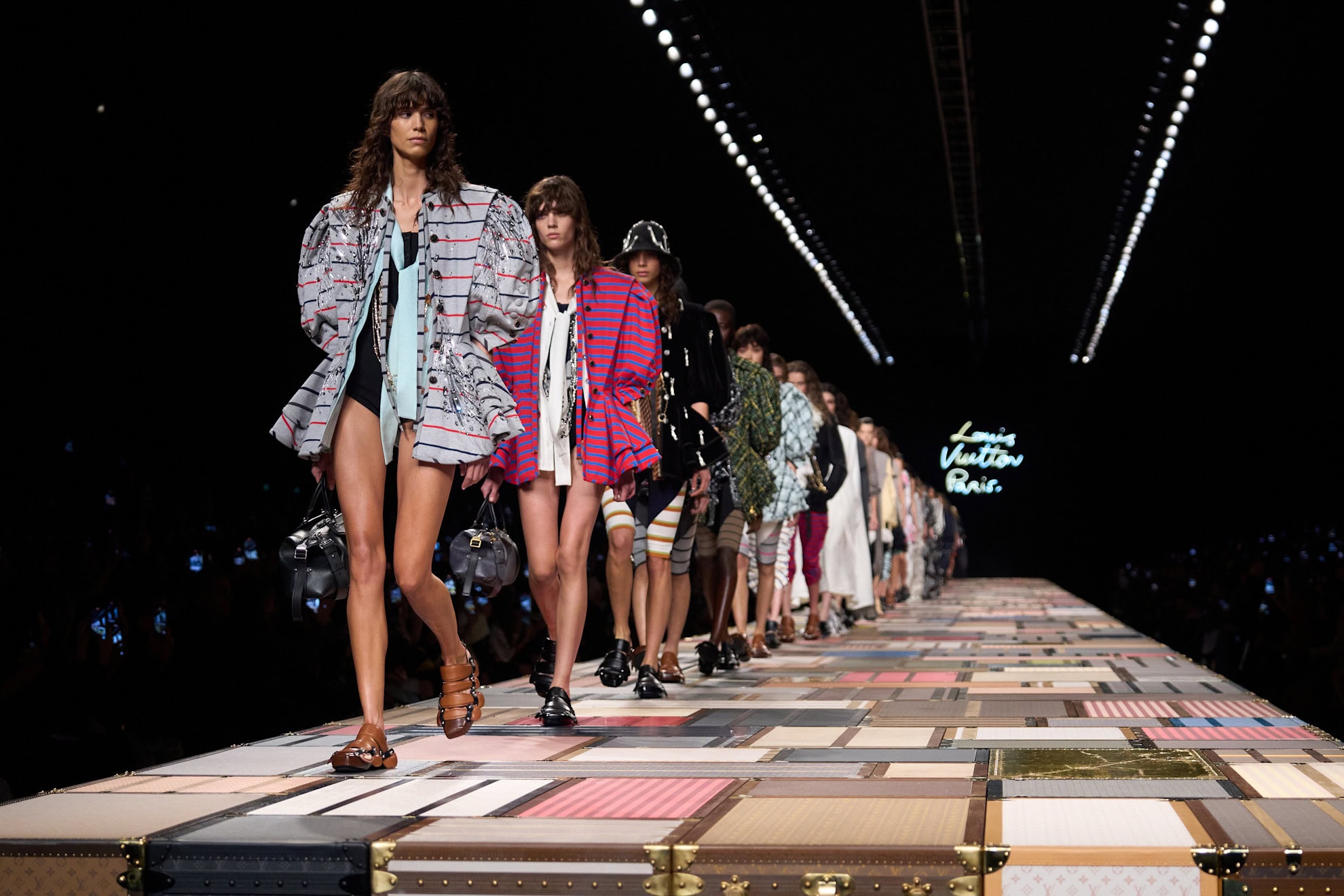Fashion and leather goods fell short of expectations, but resilience showed in Europe and strategic brand investments across Asia
Key Takeaways:
• Q1 2025 revenue came in at €20.3 billion, down 3% on an organic basis year-over-year
• Fashion & Leather Goods declined 5% organically despite strong product launches from Louis Vuitton and Dior
• Wines & Spirits posted the steepest drop, down 9% organically
• Watches & Jewelry remained flat, bolstered by innovations and new store concepts
• Sephora continued to grow, while DFS remained affected by international travel trends
• LVMH noted a slight decline in the U.S., while Europe saw growth and Asia remained stable
LVMH Moët Hennessy Louis Vuitton began 2025 with a modest slowdown, posting a 3% decline in organic revenue for the first quarter compared to Q1 2024. Reported sales came in at €20.3 billion, reflecting ongoing macroeconomic and geopolitical challenges that have impacted consumer demand across the luxury sector.
The downturn was largely driven by a 5% organic drop in the group’s key Fashion & Leather Goods division, home to powerhouses like Louis Vuitton, Dior, Loewe, and Fendi. Despite the dip, the group emphasized resilience and innovation, pointing to the success of Louis Vuitton’s collaboration with Takashi Murakami and the global launch of Dior’s D-Journey and Toujours bags.

Wines & Spirits experienced the steepest decline among divisions, falling 9% organically due to weaker demand in the U.S. and China. The champagne segment normalized after post-pandemic highs, though LVMH noted a positive start for its rosé wine portfolio and visibility from Moët & Chandon’s Formula 1 partnership.
Perfumes & Cosmetics was relatively stable, down 1% organically. Dior maintained momentum with J’adore and new launches in its La Collection Privée fragrance line, while Guerlain and Givenchy also contributed through product refreshes and limited-edition releases.
Watches & Jewelry, anchored by Tiffany & Co., Bulgari, and TAG Heuer, reported flat organic sales. The division focused on rolling out immersive brand experiences and high-profile exhibitions across Asia, along with continued product innovation in both high jewelry and technical watchmaking.
Selective Retailing, which includes Sephora and DFS, declined by 1% on an organic basis. Sephora remained a strong performer, particularly in North America, while DFS was hindered by persistent international travel slowdowns. Le Bon Marché, however, recorded a positive start to the year.

Geographically, Europe delivered growth, Japan held steady, and Asia (excluding Japan) saw slight softness due to a high comparison base. The U.S. market saw a small decline, which LVMH attributed to normalization in distribution patterns.

Despite the dip, LVMH remains cautiously optimistic. In its earnings release, the group highlighted its commitment to innovation and long-term brand investment, citing major exhibitions in Seoul, Shanghai, and Tokyo as part of its continued cultural strategy.
As the first major European luxury house to report earnings this season, LVMH sets a cautious tone for competitors, with Hermès and Kering slated to release results in the coming weeks.
